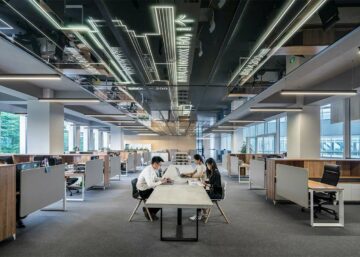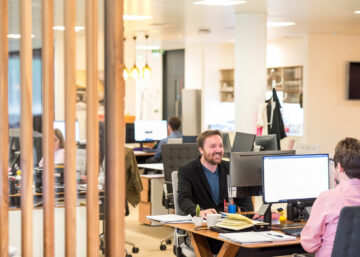One of the valuable actions of any Human Resources department is to analyse the people involved in an organisation: understand that their needs vary and are not linear. This concern to understand all the stakeholders thoroughly enables highly customised actions, that are bound to be much more effective.
It is no coincidence that market research has been focusing on Millennials for a while now, the population that nowadays ranges between 23 and 38 years of age. So it is worth answering: are talent managers aiming their strategy at the right people?
According to the latest Deloitte study, The Deloitte Global Millennial Survey 2019, the percentage of those surveyed who indicated that organisations are positively impacting dropped from 61% in 2018 to 55% in 2019. This survey was conducted on 13,416 Millennials (born between 1981 and 1994) in 42 countries and 3,009 individuals of Generation Z (born between 1995 and 2002) from 10 countries.
In this regard, Deloitte Talent Director, Michele Parmelee, expressed the following: “I would say that, for companies, the most important conclusion is the increasingly reduced confidence among Millennials and young people of Generation Z”.
It is important to understand that the qualities of these generations (Y and Z) have been determined by a totally different context from that of their predecessors, due to the dramatic changes they have undergone. These people were born in full digital transformation and grew up having to adapt, whether consciously or unconsciously. So, they expect their work environment to be fully supportive of the challenges of the digital age. They have a rather critical vision of current organisational cultures because they have had to face increasingly challenging environments.
If there is a trait that identifies Millennials it is that they have a greater multitasking ability. They tend to be demanding regarding time management and tasks, which might make them be slightly at odds with “work schedules,” especially if these are overly strict.
Increasingly prepared professionals
Another important aspect to note is that digital natives have understood the importance of constantly updating knowledge and value the fact that their organisations promote spaces for development. Therefore, the ideal organisational culture for Millennials includes possibilities for education and/or training.
In this regard, Daniela, aged 31, who is a commercial consultant at a tourism agency said: “I would like my organisation to invest more in our intellectual development, for example, with workshops and training courses that give me more tools as a professional.”
One of the most common mistakes in talent management is to continue applying the same practices as twenty years ago and pretend to have successful processes today. Just like the way of managing projects and executing tasks has changed, the values and customs of organisations must also change.
Finally, the challenge for HR Managers is to assess whether the organisational culture is being effective in an environment where people with different generational traits interact. The key is to get to know employees and transform the organisational culture by accommodating each of their needs.




